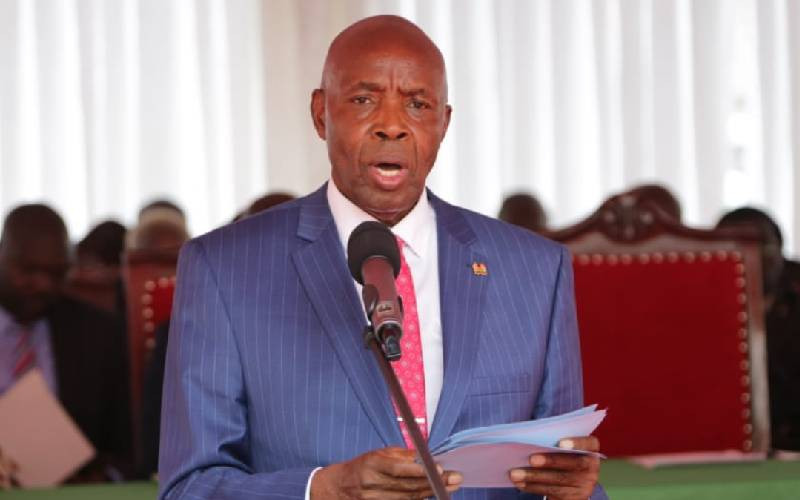×
The Standard e-Paper
Fearless, Trusted News

The government did not reveal the names of top performers in KCPE exams for the first time in many years.
Education Cabinet Secretary (CS) Ezekiel Machogu, while releasing the 2022 KCPE results, announced only the top score, and how marks were distributed in the different score categories.